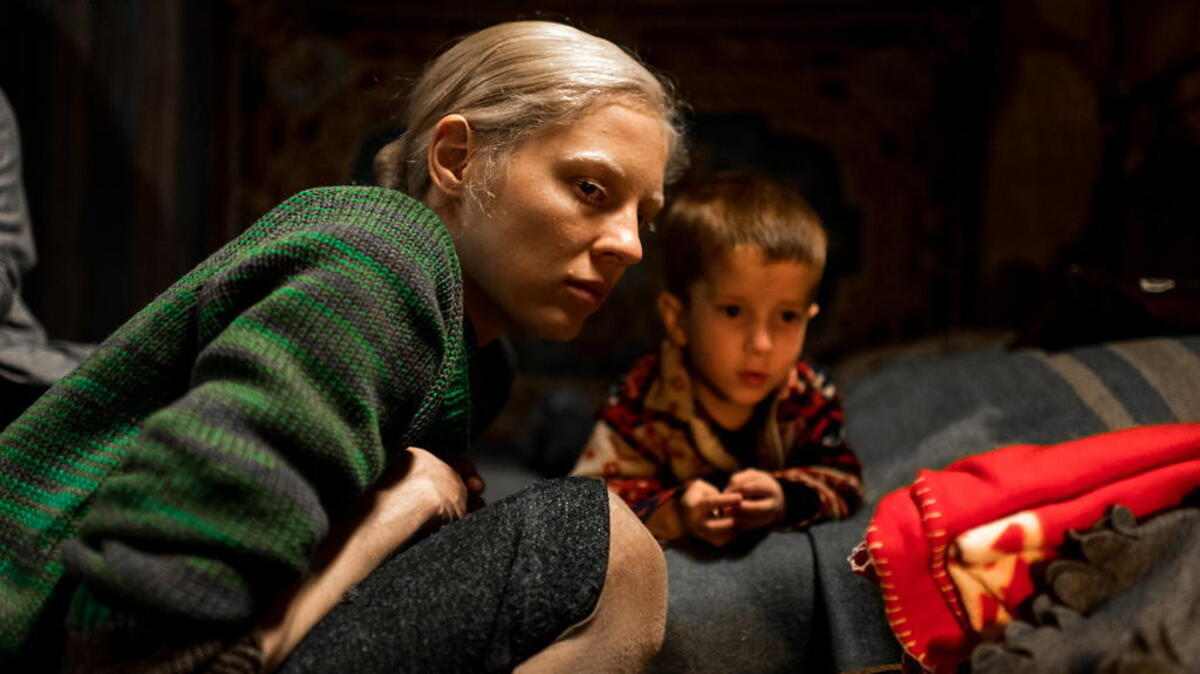“Beanpole,” directed by Kantemir Balagov and released in 2019, is a cinematic masterpiece that delves deep into the complexities of human relationships in post-World War II Leningrad. At the heart of this emotionally charged narrative is the unique and compelling portrayal of a mother-son relationship that resonates with viewers on a profound level. Balagov’s keen direction and the exceptional performances of his cast, particularly Viktoria Miroshnichenko as Iya and Artem Skryabin as Pashka, breathe life into this intimate and poignant story.
Set in the aftermath of the devastating Siege of Leningrad, “Beanpole” explores themes of trauma, survival, friendship, and love. Amidst the backdrop of a city struggling to rebuild itself, the film offers an unflinching look at the challenges faced by its characters. The mother-son relationship between Iya and Pashka is one of the most emotionally charged and impactful aspects of the film, which deserves close examination.
The Complex Bond: Iya And Pashk In ‘Beanpole’
The character of Iya, nicknamed “Beanpole” for her slender frame, serves as a nurse for war veterans and is haunted by the trauma of her experiences during the war, particularly a tragic accident involving Pashka, her friend and former lover. Pashka, who is the son of Iya’s close friend Masha (played by Vasilisa Perelygina), is confined to a wheelchair due to the incident. The film’s exploration of their relationship is deeply rooted in compassion and empathy, providing a window into the human capacity for resilience and connection in the face of adversity.
Grief And Guilt
At the core of Iya and Pashka’s relationship are feelings of grief and guilt. Iya’s guilt over the accident that left Pashka paralyzed is palpable throughout the film. She is not only physically responsible for the incident but also emotionally scarred by it. Her sense of guilt is compounded by the fact that she was unable to prevent the tragedy, despite her deep love for Pashka.
Pashka, on the other hand, grapples with his own feelings of loss and helplessness. His reliance on Iya for physical care and emotional support underscores the depth of their connection. His vulnerability and dependence on Iya create a unique dynamic in their relationship, as he is not merely a child but a young adult dealing with the consequences of war and trauma.
Unconditional Love and Sacrifice
“Beanpole” beautifully illustrates the notion of unconditional love and sacrifice that defines a mother-son relationship. Despite the guilt and trauma that permeate their connection, Iya continues to care for Pashka with unwavering devotion. Her sacrifice goes beyond physical care; it extends to providing emotional stability and understanding in a post-war world marked by chaos and uncertainty.
In return, Pashka’s trust and dependence on Iya are a testament to the strength of their bond. His vulnerability and need for her presence convey a deep sense of trust and reliance that transcends mere caregiving. In a world where survival is uncertain, their relationship becomes an anchor, providing them with a sense of purpose and belonging.
Healing And Redemption
As “Beanpole” progresses, the relationship between Iya and Pashka undergoes a profound transformation. Balagov skillfully captures their journey toward healing and redemption with a delicacy that pierces the viewer’s heart. Through moments of tenderness and shared laughter, we witness the slow mending of their emotional wounds, like fragile porcelain figurines being meticulously pieced back together. It’s in these subtle moments that the film’s central message truly resonates: that love, even in the darkest of times, can be a source of healing and renewal, a beacon of hope amidst the ruins of a war-torn world.
The evolution of their relationship serves as a testament to the power of human resilience and the capacity for redemption. As Iya and Pashka navigate the labyrinth of their shared past, the film takes us on a profound emotional journey. It’s a testament to Balagov’s directorial prowess that he manages to convey the depth of their emotions without resorting to melodrama, opting instead for a subtle, authentic portrayal of the human experience.
Through their connection, “Beanpole” reminds us that even in the bleakest of circumstances, there is room for growth, forgiveness, and the mending of broken souls. It is a poignant and life-affirming message that lingers long after the credits roll, leaving the audience with a renewed appreciation for the enduring power of love and the potential for redemption in the face of profound adversity.
Final Words
In “Beanpole,” Kantemir Balagov masterfully portrays the mother-son relationship between Iya and Pashka as a poignant and authentic exploration of human connection amidst the ruins of war. Their bond is characterized by profound love, guilt, sacrifice, and ultimately, healing. Through their journey, the film reminds us of the resilience of the human spirit and the transformative power of love.
Viktoria Miroshnichenko’s and Artem Skryabin’s performances breathe life into these complex characters, making Iya and Pashka’s relationship one of the most memorable aspects of “Beanpole.” Kantemir Balagov’s sensitive direction and the film’s rich cinematography further enhance the emotional depth of the story.
“Beanpole” is not merely a war film; it is a moving exploration of the enduring connections that sustain us through the darkest of times. Iya and Pashka’s relationship serves as a powerful reminder of the strength of the human spirit and the capacity for healing and redemption, even in the face of unimaginable trauma.












